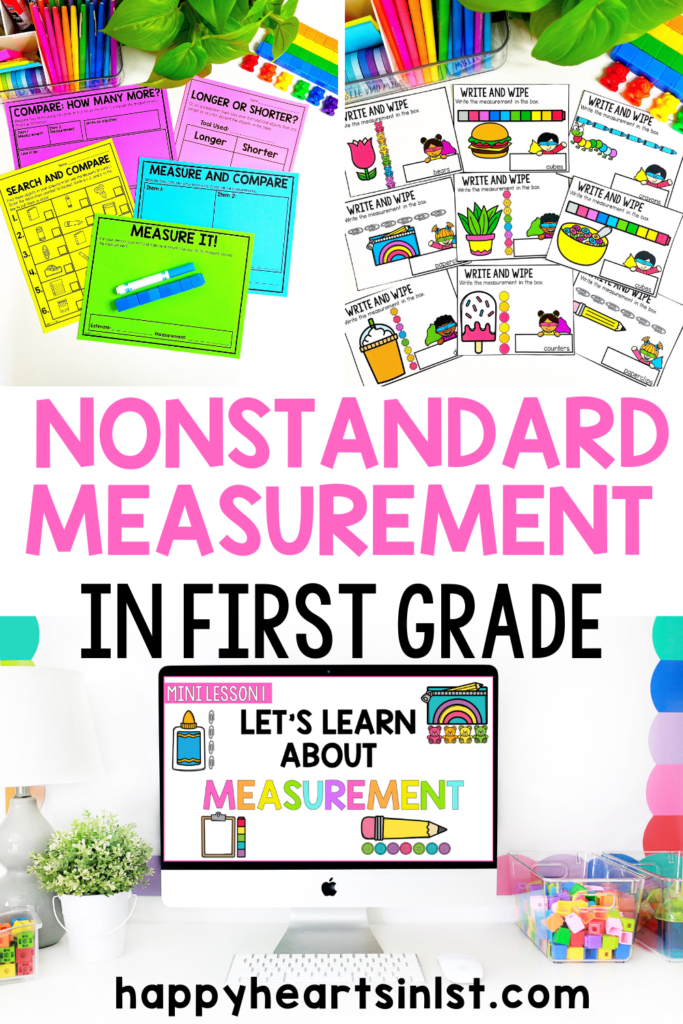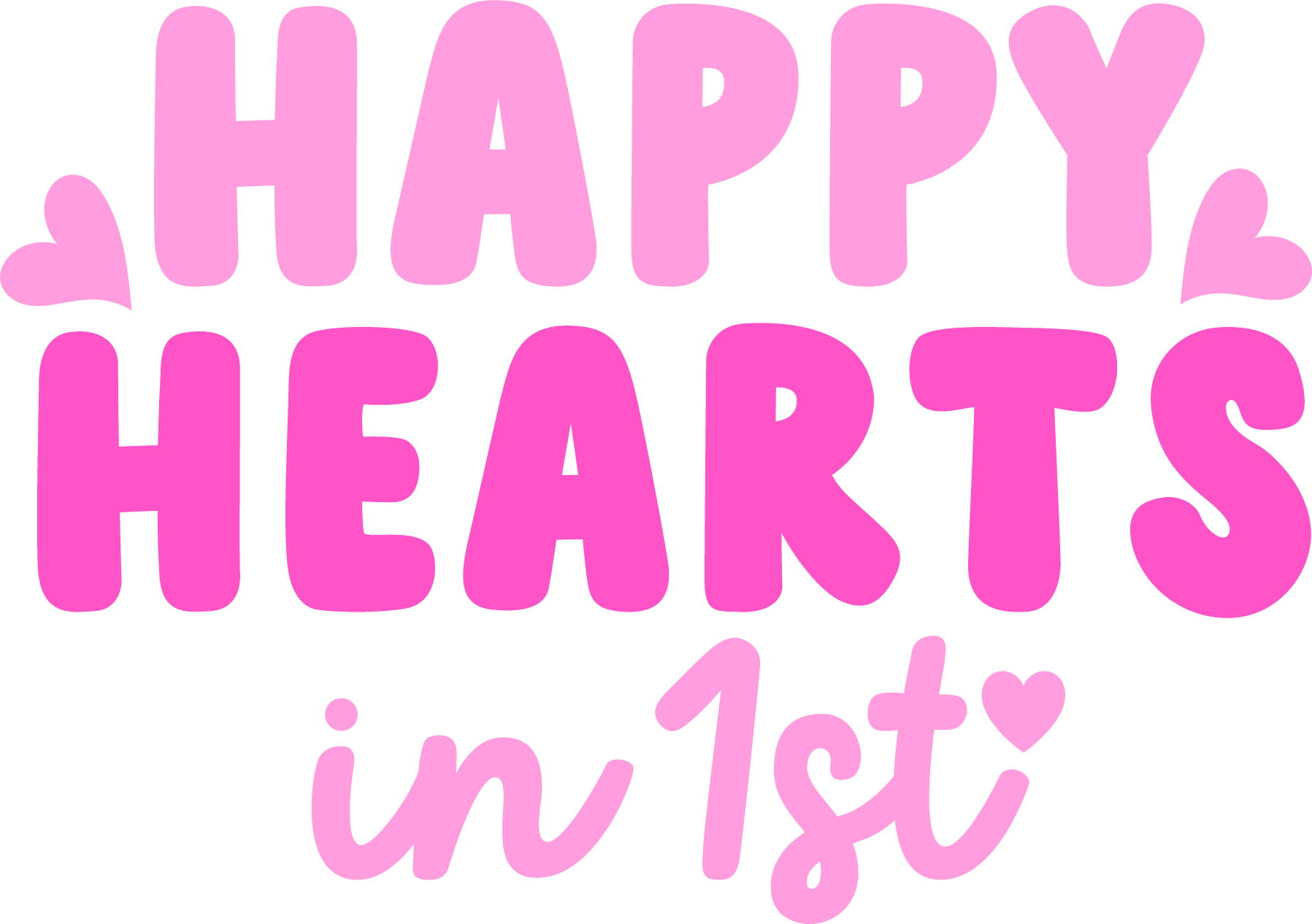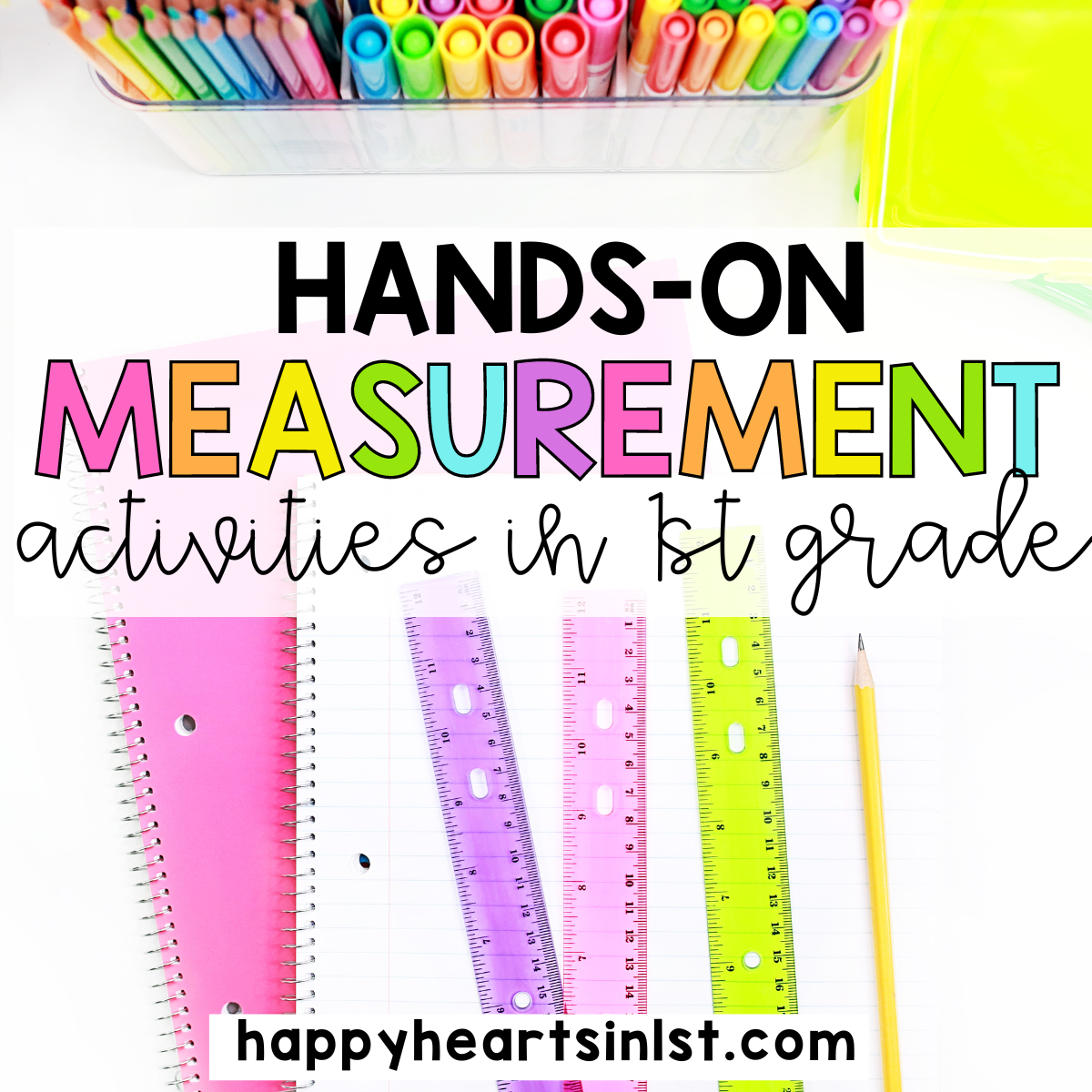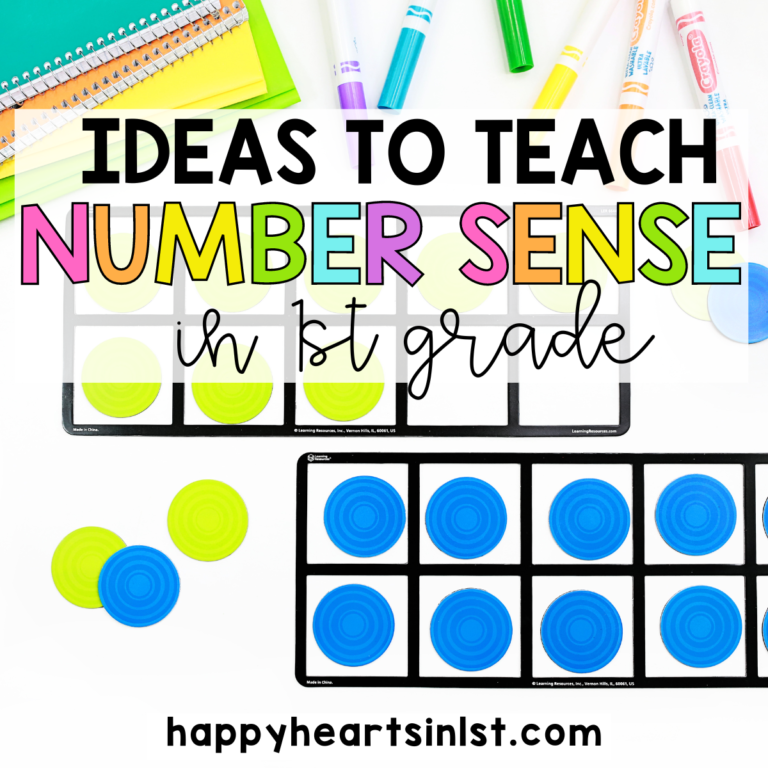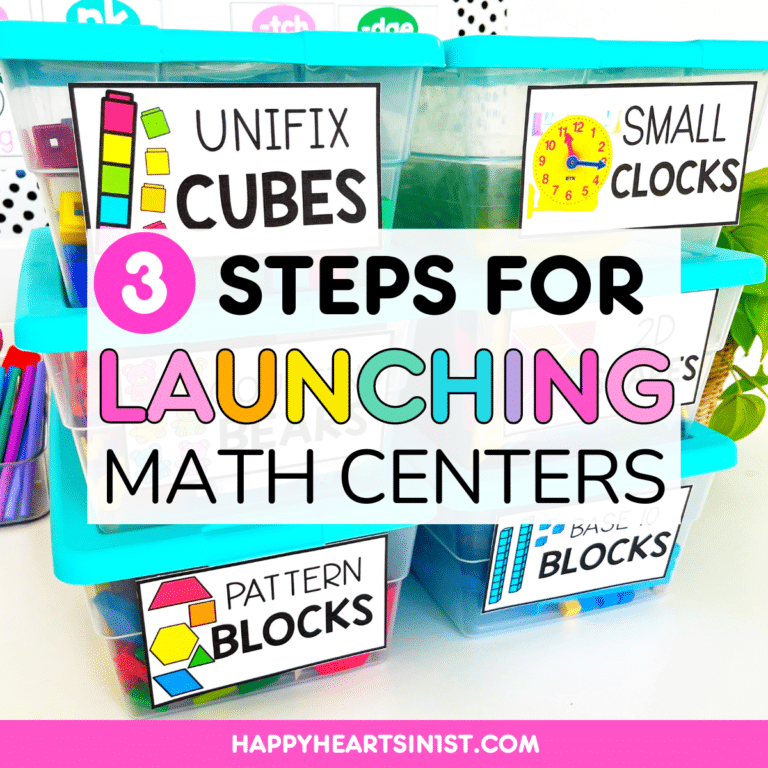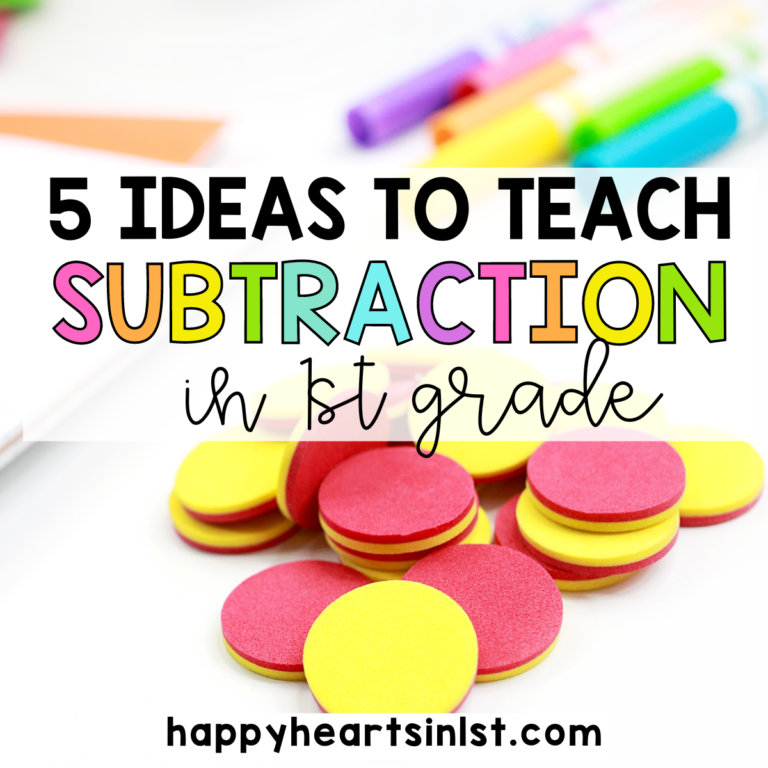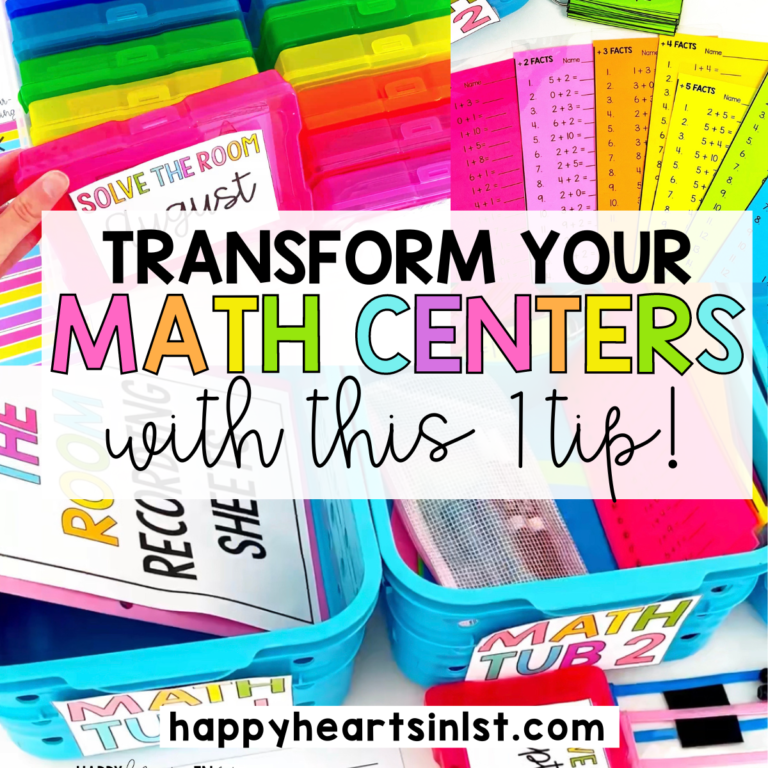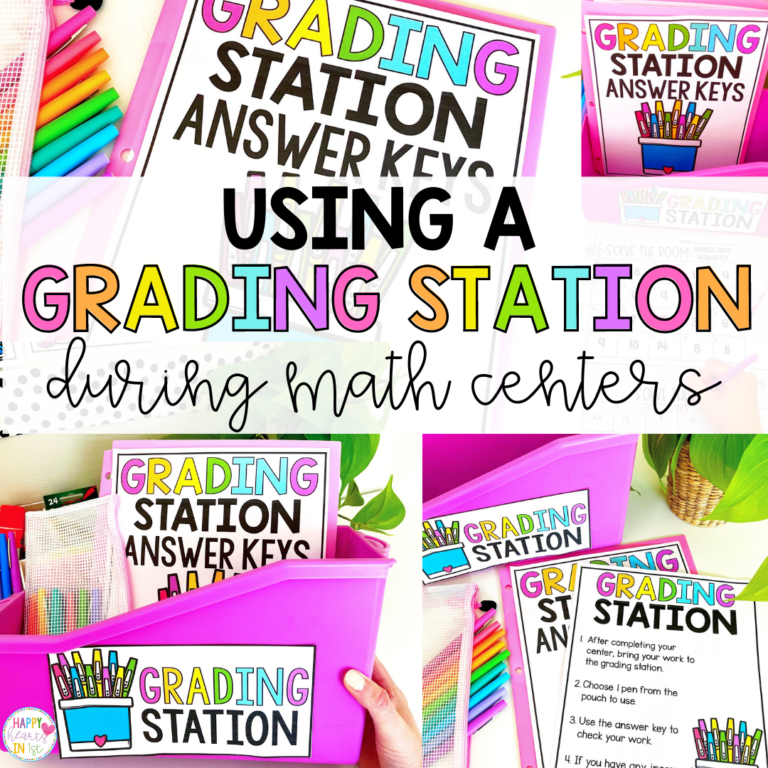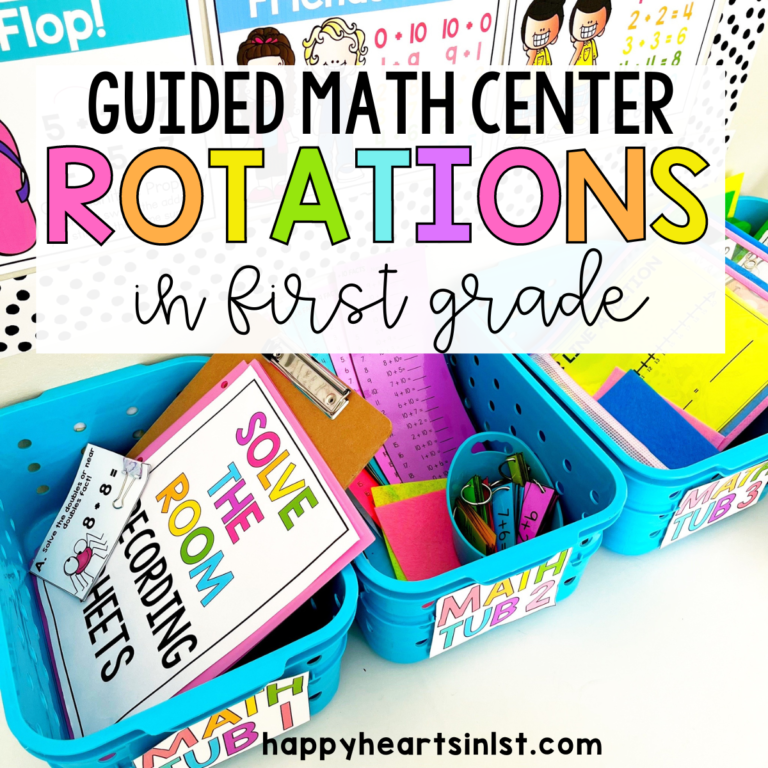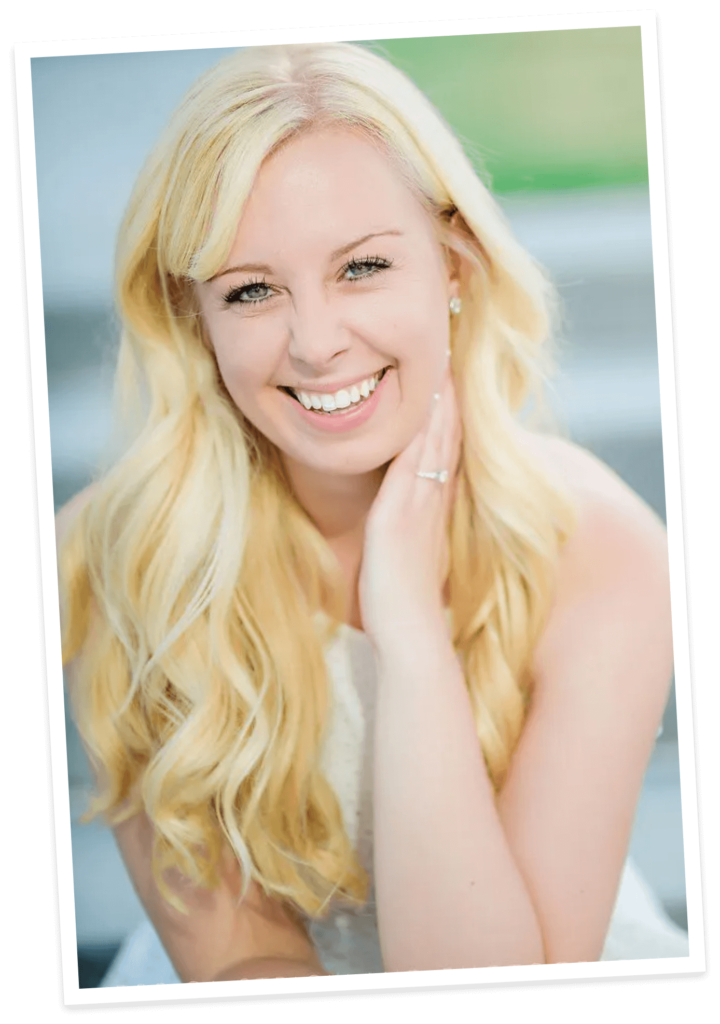Are you getting ready to introduce nonstandard measurement in first grade? I absolutely love teaching measuring with nonstandard units! After working so hard on addition, subtraction, and place value, nonstandard measurement feels like a much needed break 🙌🏻 There are so many hands-on nonstandard measurement activities that will spark your students’ excitement and deepen their understanding of measurement. In this post, I’m sharing all of my favorite activities for measuring with nonstandard units along with measurement lesson ideas, anchor charts, practice worksheets, and more!
You can find all of the lessons, activities, worksheets, and anchor charts from this post in my Measurement Guided Math Unit for First Grade here!
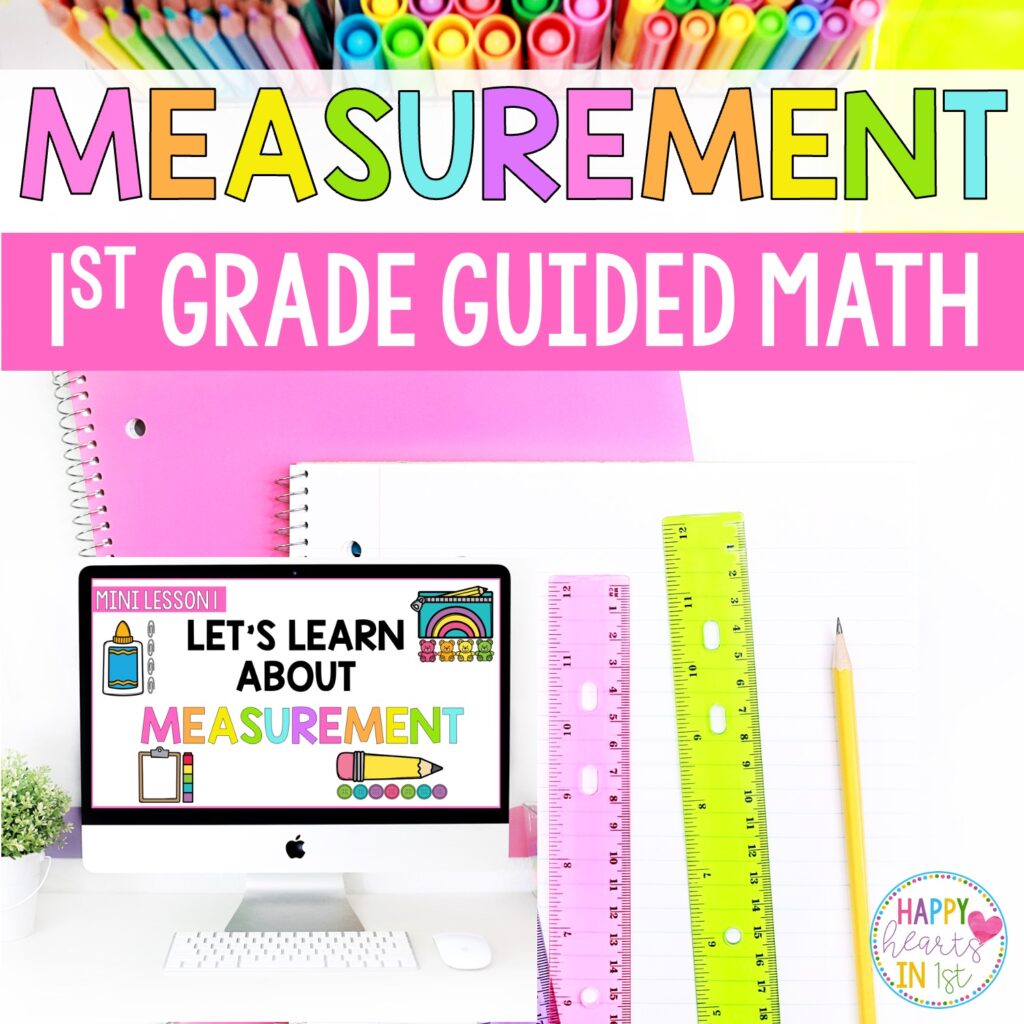
What is nonstandard measurement in first grade?
Nonstandard measurement refers to the process of measuring objects using nonstandard units. In first grade, it is an essential concept that helps students develop a foundational understanding of measurement.
Instead of measuring with standard units such as inches, feet, and centimeters, we are using everyday objects such as popsicle sticks, paperclips, and cubes to measure lengths.
By exploring nonstandard measurement, students begin to grasp the concept of comparing and quantifying objects based on size. It provides them with a hands-on approach to understanding measurement, setting the stage for future exploration of standard measurement units.
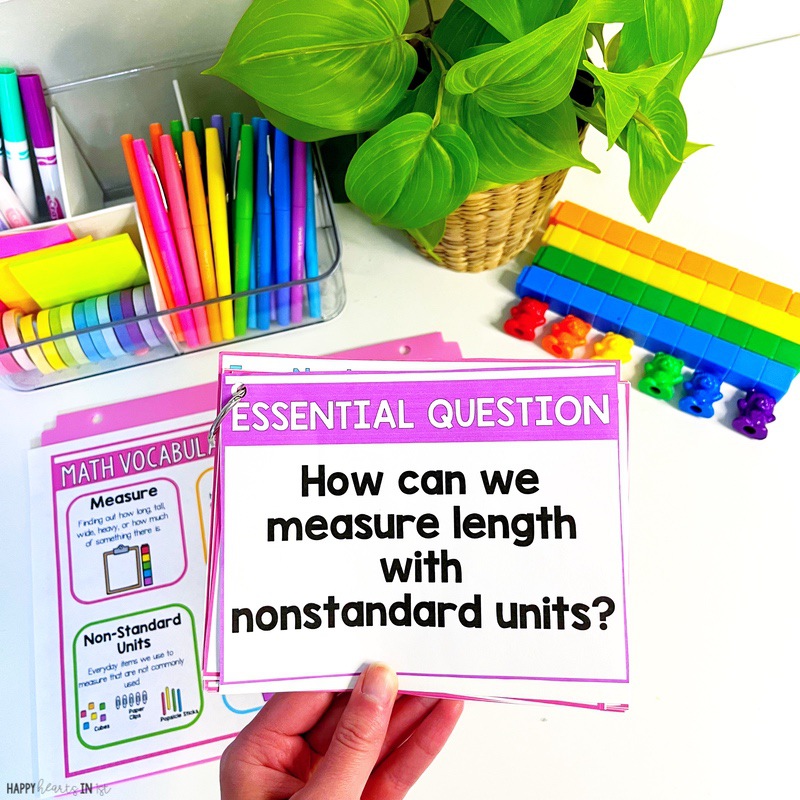
Introducing Nonstandard Measurement
When teaching nonstandard measurement in first grade, there are a few key concepts we want students to grasp. We learn the “Rules for Nonstandard Measurement.”
Teach students that when measuring with nonstandard units we,
- Must use items that are all the same size
- Line up items from end to end of the object
- Have no gaps or overlaps between our units
This anchor chart helps to introduce these nonstandard measurement rules!
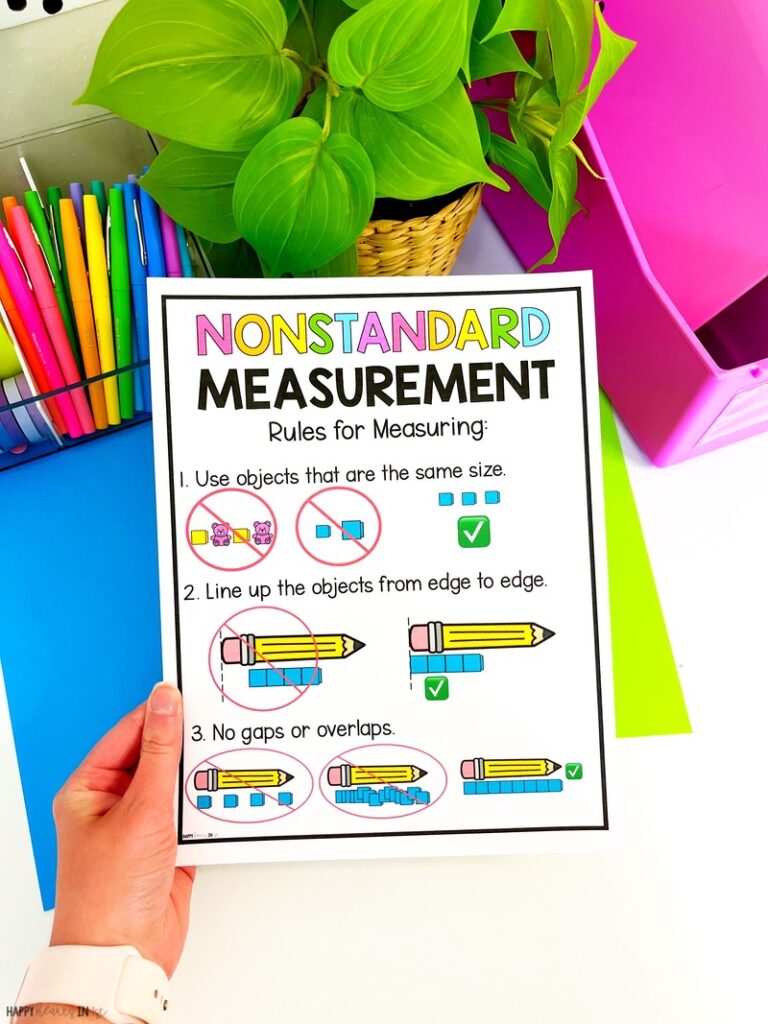
These rules help students understand the guidelines and strategies for measuring objects using nonstandard units.
In our nonstandard measurement unit, here are the main points we cover:
- Choosing a Nonstandard Unit: We teach students how to choose an appropriate nonstandard unit for measuring objects. Whether it’s paper clips, cubes, or their own hands, they learn to select a unit that is consistent and can be easily applied to different objects.
- Estimation: Estimation is an important skill in measurement. We encourage students to make an educated guess or estimate the length or size of an object before measuring it. This helps develop their understanding of relative size and improves their accuracy in measurement.
- Lining Up the Units: Students learn how to align the nonstandard units along the object they are measuring. This helps them understand that the units should be placed end-to-end without any gaps or overlaps to ensure an accurate measurement.
- Counting the Units: Once the units are lined up, students count the number of units it takes to measure the object.
By focusing on these key concepts, we build a foundation for understanding nonstandard measurement in first grade. These rules provide a framework for our measurement activities and help students become confident in measuring objects using nonstandard units.
Nonstandard Measurement Mini Lesson Slides
During our whole group time in our guided math block, we have daily mini lessons where concepts and skills are introduced. I love using interactive slides to teach my mini lessons!
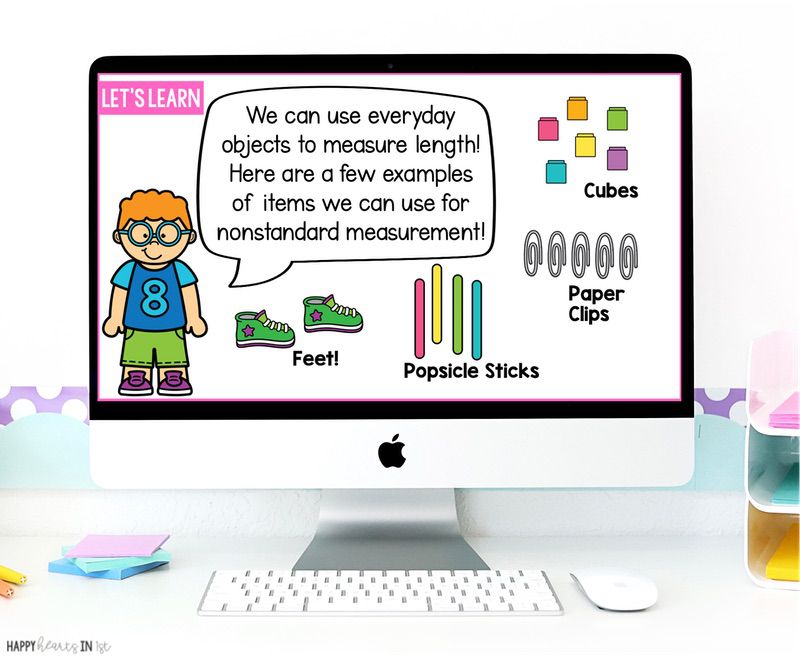
These slides make it easy to prep lessons that are engaging for all students! Each lesson has:
- Our daily learning objective
- Math Vocabulary
- Direct Instruction and Modeling
- A quick practice activity
- Critical Thinking/ Discussion
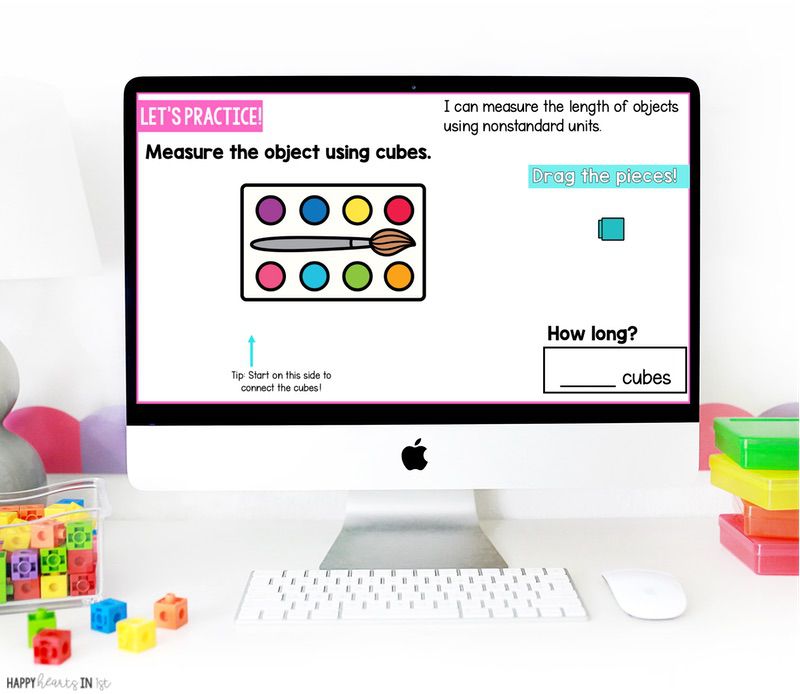
I also like to have students bring a dry erase board and marker so that everyone can be actively engaged during quick practice in the mini lesson! Students sit next to a partner and we do frequent turn and talks to share our thinking.
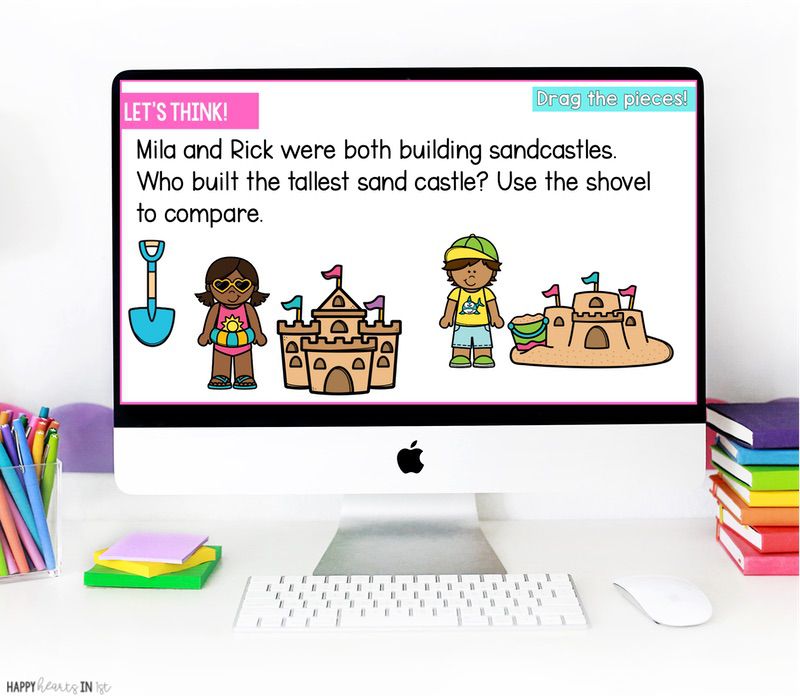
Small Group Nonstandard Measurement Practice
After our whole group mini lesson, students begin their daily 3 Guided Math Rotations. During this time, I meet with small groups of students at my teacher table. This is when students receive differentiated instruction from me while practicing their nonstandard measurement skills in hands-on ways!
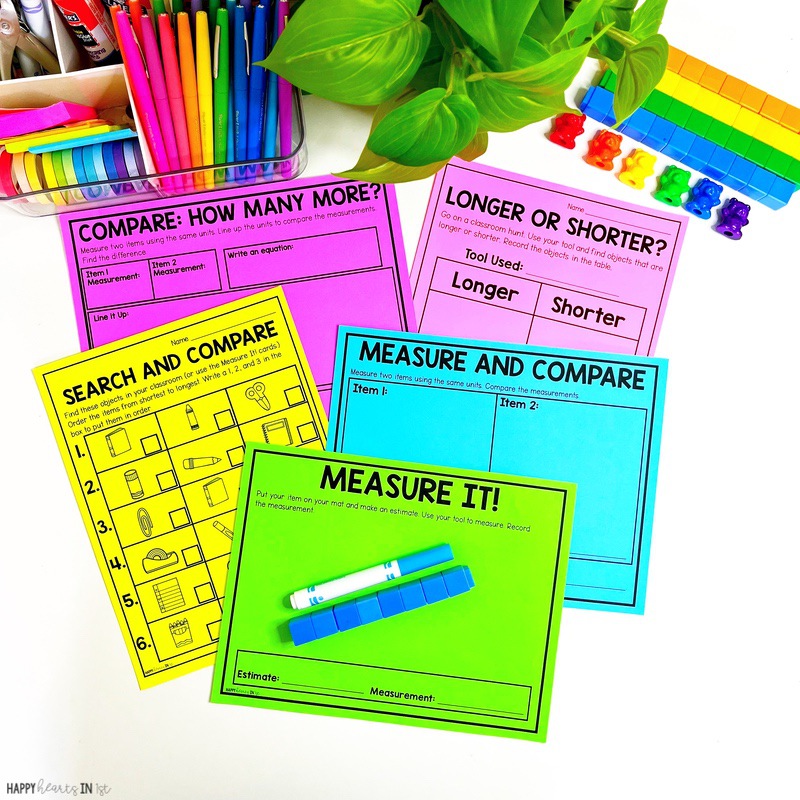
Preparing Supplies for Measuring with Nonstandard Units
In order for students to get hands-on experience measuring with different nonstandard units, I create measurement pouches!
I prepare these pouches with different nonstandard units for students to use throughout our math unit. If you don’t have pouches, zip lock bags are also fine to use!
I like to prepare enough for each student in my small group. This keeps our units organized and easy to put away each day.
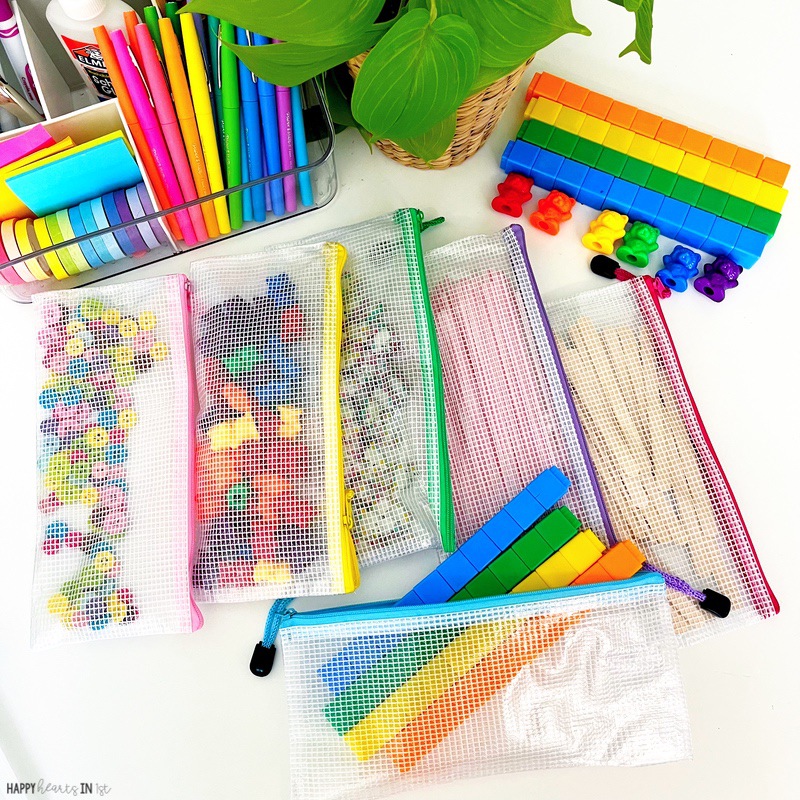
Some units I include are:
- Cubes
- Paperclips
- Counters
- Bears
- Base 10 cubes
- Mini Erasers
- Popsicle Sticks
- Straws
I also like to create Measurement Baskets. I gather items from our classroom that students can practice measuring with their units!
I try to make 3-4 baskets of items so I can give a basket to a pair of students at the teacher table to use during our small group time! This allows me to have everything on hand and not have to run around grabbing everything each day!
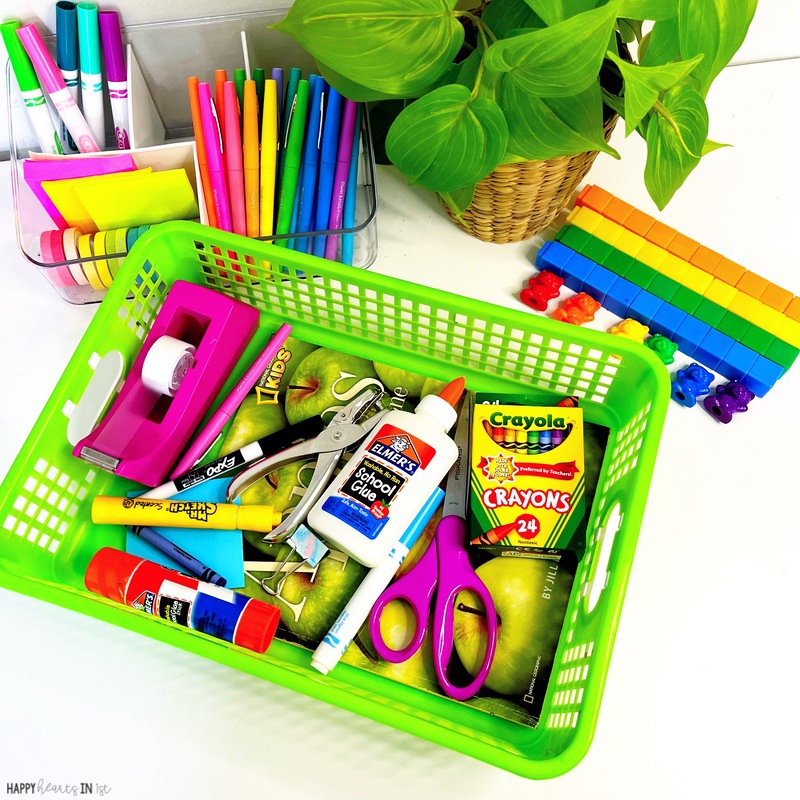
I include items such as glue bottles, markers, crayons, books, notebooks, post-its, pens, and any other random items I can find in my classroom that will work well for measuring!
Measurement Math Mats
Students use these Measure It Math Mats to measure different items from their baskets. They simply grab an item and measure it with their nonstandard units. I put the Math Mats in a dry erase pocket so that students are able to write their measurement directly on their mat. Then they can erase and measure another item!
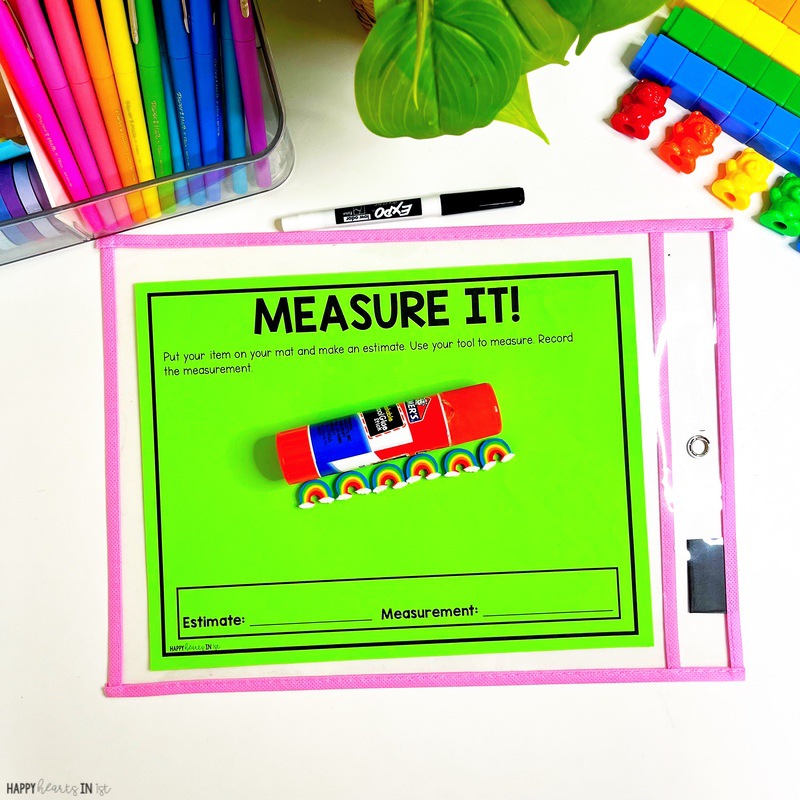
Measure It! Cards
We also practice measuring with our Measure It! Cards. I put the cards in the middle of the table. Students each grab a card, put it on their math mat, and measure! I also included a recording sheet so this activity could be used as a math center.
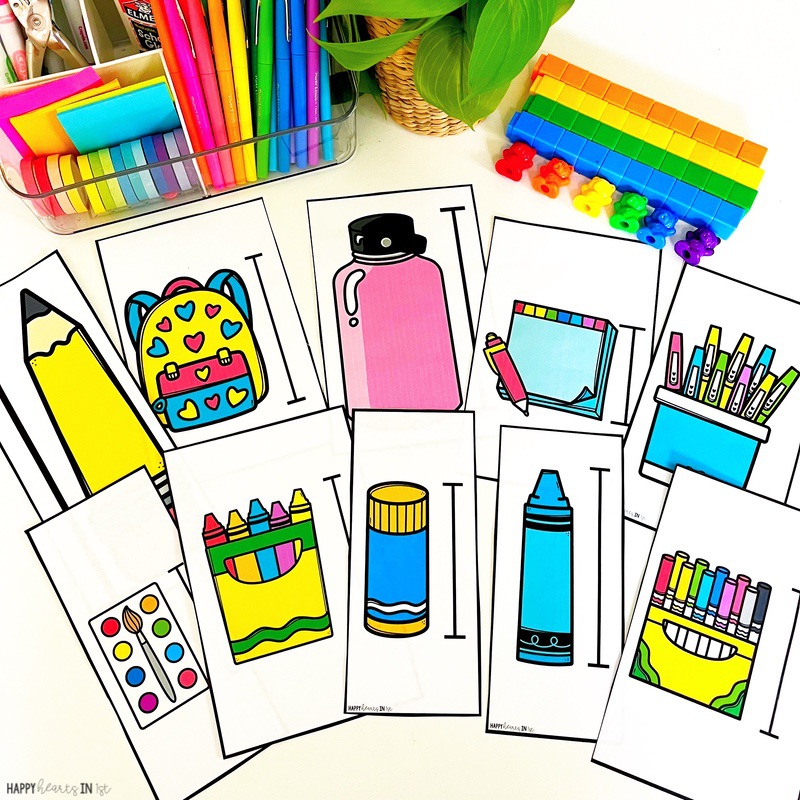
Hands-on Nonstandard Measurement Activities
I try to incorporate as many hands-on Nonstandard Measurement Activities as I can! Here are a few ideas that can be done in your small group, math centers, or whole group!
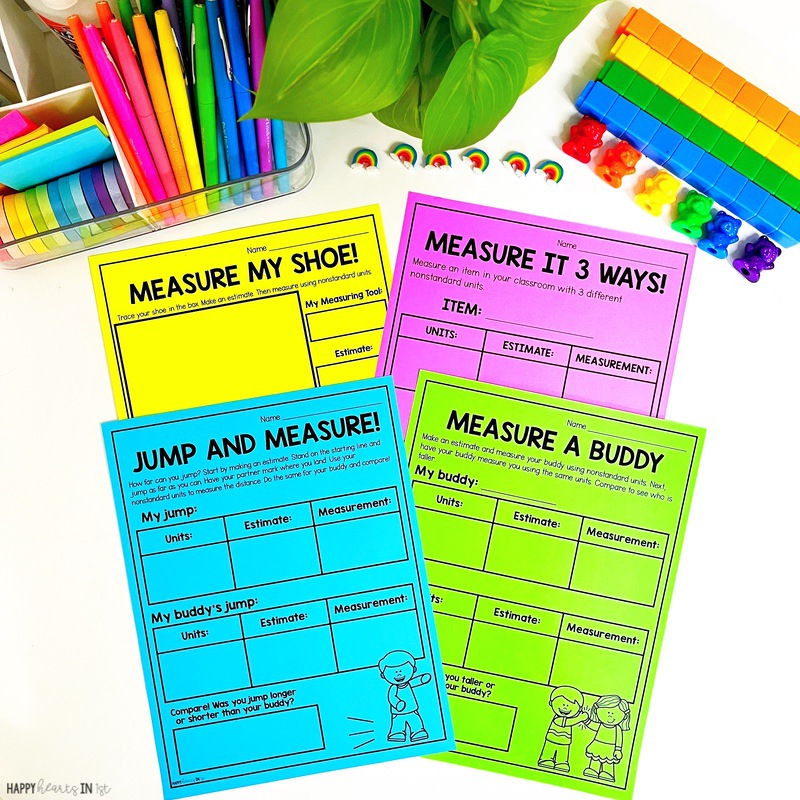
Measure My Shoe
In this activity students will trace their shoe on the recording page. They will practice making an estimate, measuring with nonstandard units, and comparing their measurement with a partner.
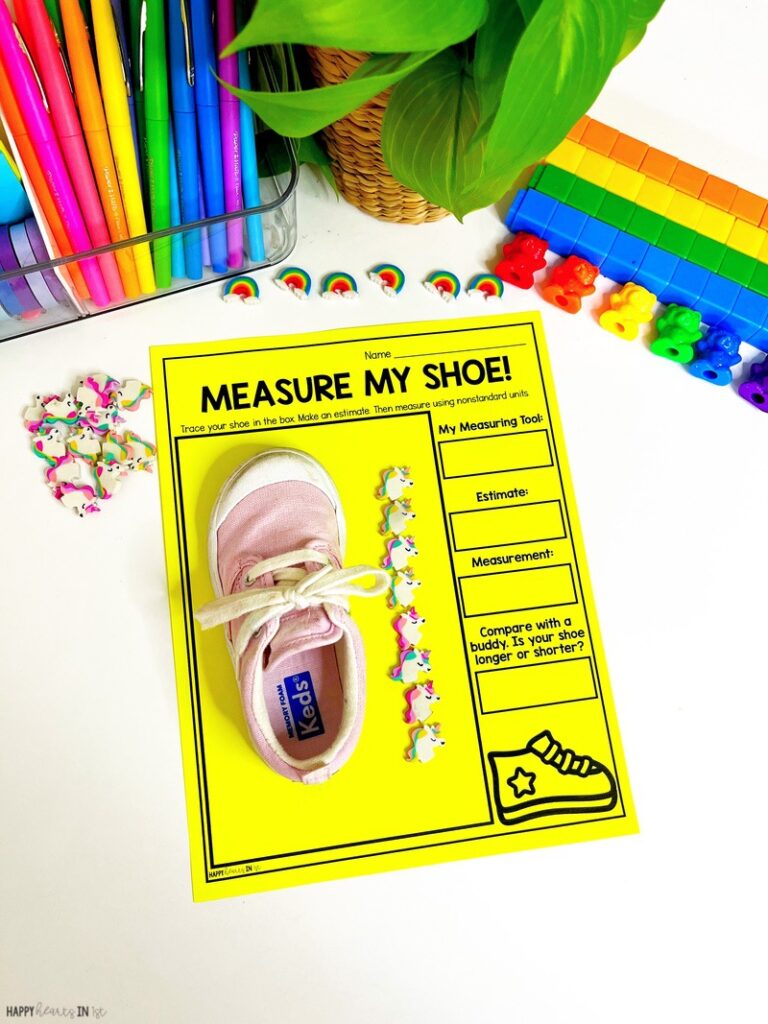
Measure a Buddy
Students will work with a partner to measure one another’s height. First, have each partner make an estimate for their height and partner’s height. Then they will take turns measuring one another and compare the measurements.
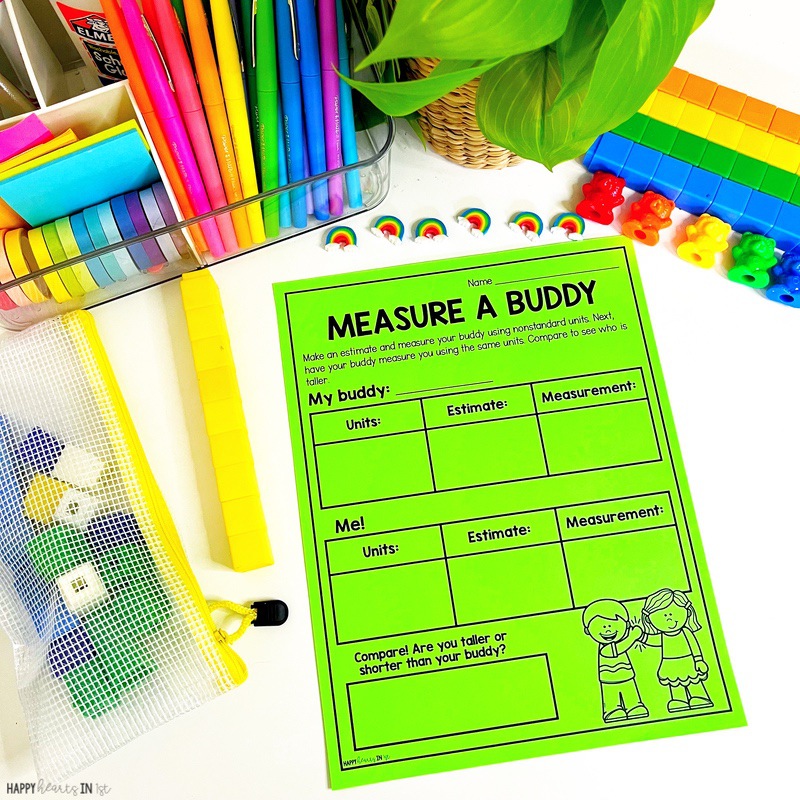
Jump and Measure
In this nonstandard measurement activity, students will estimate and measure how far they can jump. They will stand at a starting point (I like to use painters tape on the carpet,) and jump as far as they can. A partner will mark where they land. They will then make their estimate and measure the length with nonstandard units.
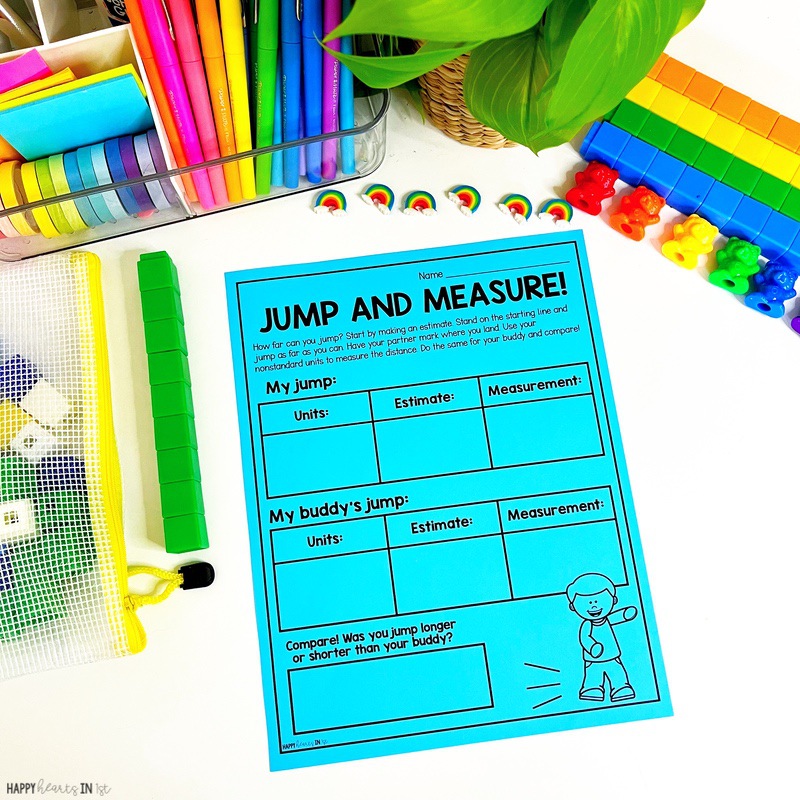
Measure 3 Ways
One of our measurement mini lessons is all about how using different units to measure the same item will change the measurement. Students will explore how big or small a unit is affects how many we need to measure!
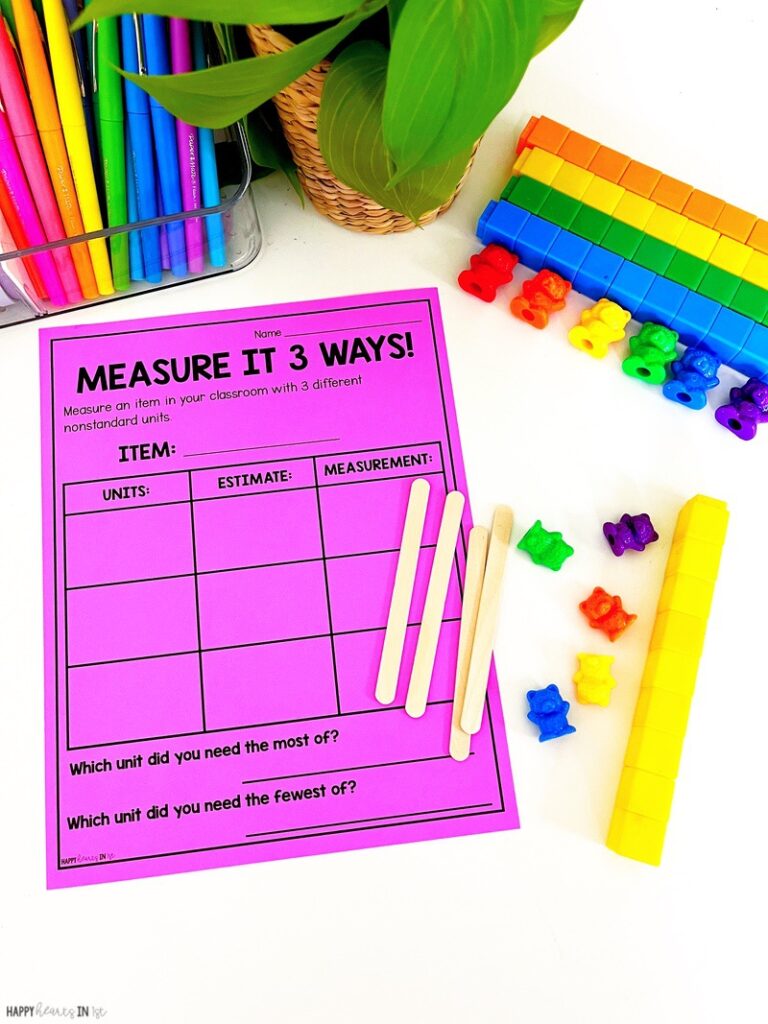
Nonstandard Measurement Worksheets for Grade 1
For independent practice, I included nonstandard measurement worksheets. Students will practice comparing and ordering lengths and measuring with nonstandard units.
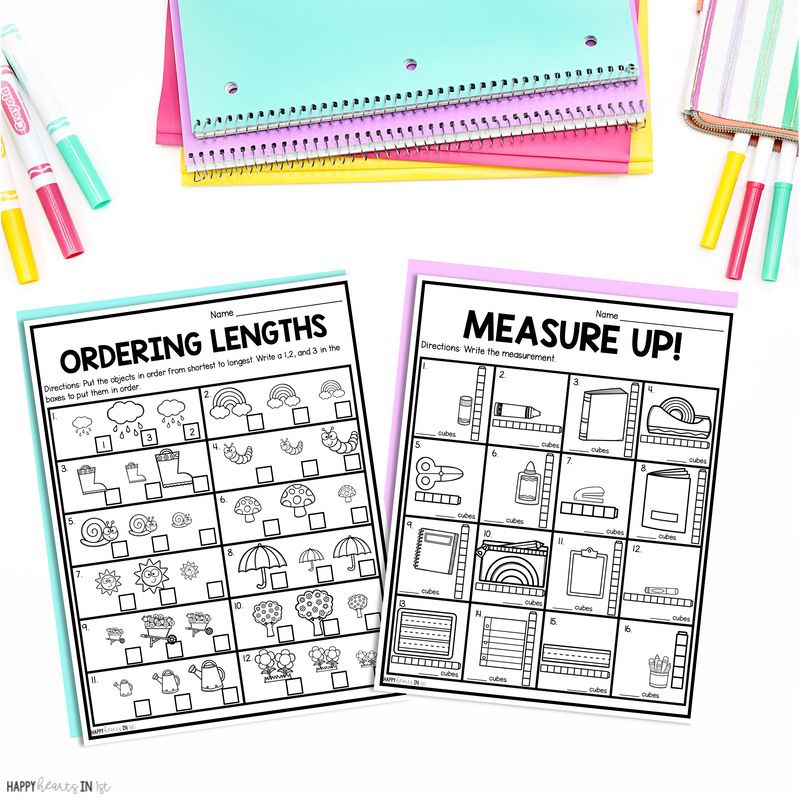
These can be used during math centers, for morning work, or sent home as extra practice!
These could also be used to put together Math Folders or packets for independent work time during math rotations.
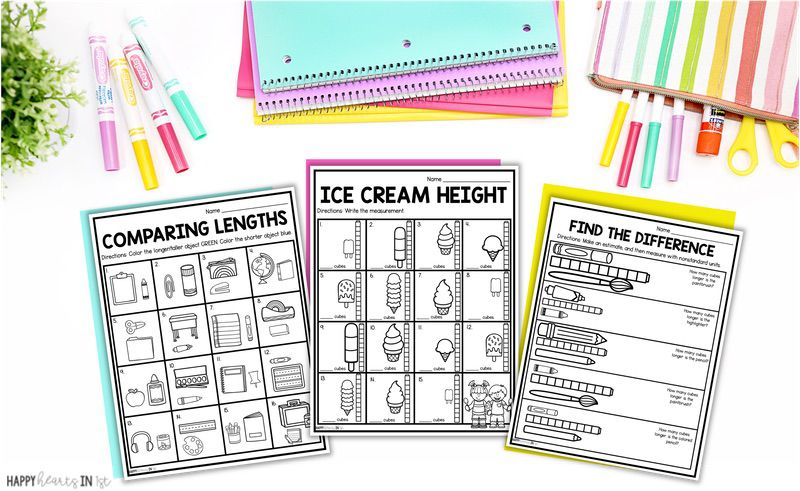
Measurement Word Problems
In order to encourage higher level thinking and challenge my students, I like to introduce Measurement Word Problems. These comparison word problems are great for students that are ready for extra enrichment!
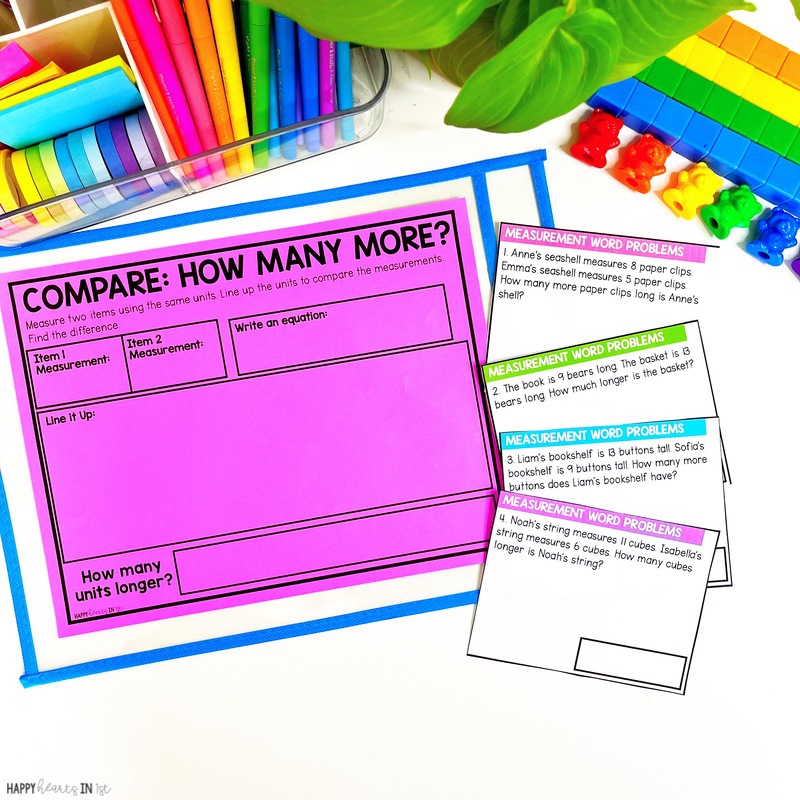
More Measurement Practice
For students that need more practice with nonstandard measurement skills, these Write and Wipe Cards are perfect as a small group intervention activity or as an independent math center!
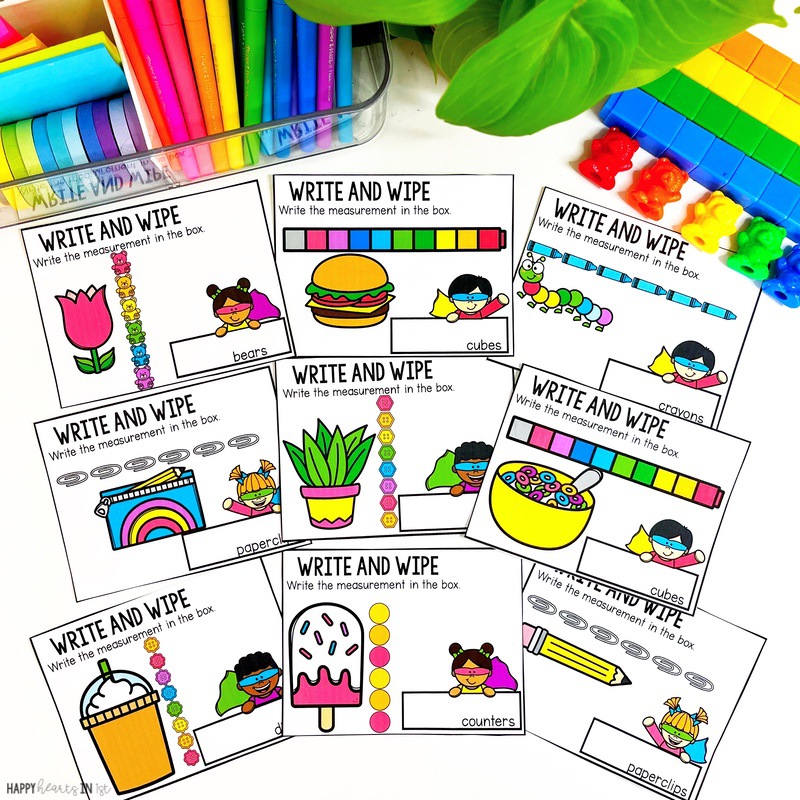
Measurement Math Craft
I love to celebrate the end of a math unit with a math craft! These Royal Measurement crafts are a great opportunity for students to be creative while also using their nonstandard measurement skills!
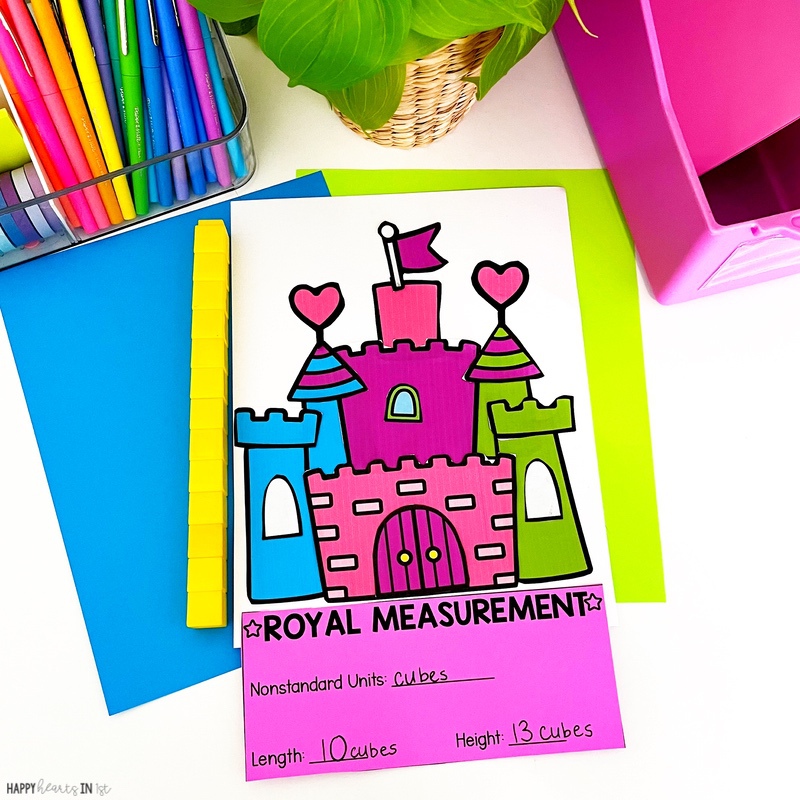
How do I assess when teaching Nonstandard Measurement to first graders?
Assessment is an important part of guided math! It not only tells us if students have mastered concepts at the end of a unit, but it also helps inform teaching decisions during a unit. There are 3 main ways that I assess in my guided math block.
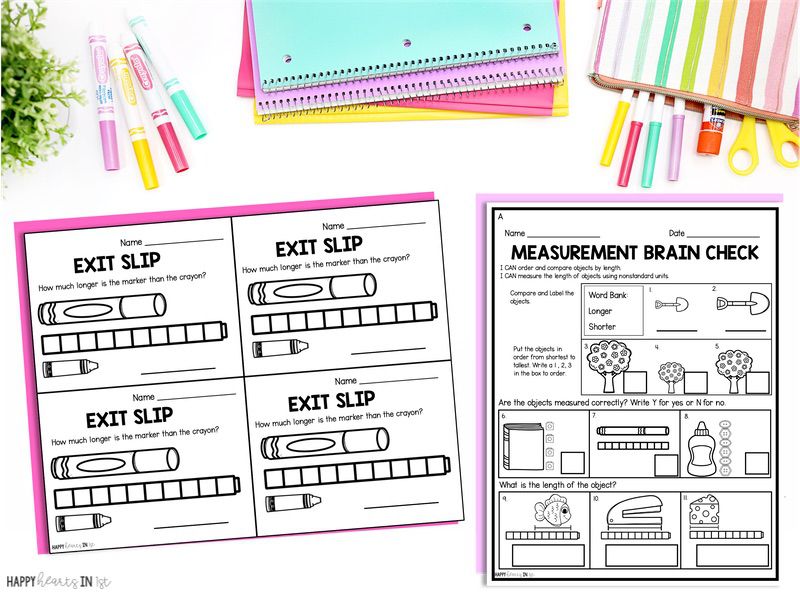
- Exit Slips: Giving quick exit slips at the end of a small group session is perfect for checking students understanding during a math unit.
- Observation: Along with exit slips, I use a lot of observation as a formative assessment. I keep anecdotal notes in my guided math planning binder! You can grab it for free here!
- Brain Check: At the end of a unit, I give a summative assessment over the standards we covered! In the unit, I included two versions of the brain check so that one could be given as a pre-test and one as a post-test.
Want your Nonstandard Measurement Unit planned for you?
You can grab this 400+ page resource that includes:
- ⭐️ Ready-To-Use Mini Lesson Slides
- ⭐️ Hands-on Activities to use during small group instruction, whole group, and math centers
- ⭐️ Anchor Charts and Mini Posters
- ⭐️ Measurement Worksheets and Independent Practice
- ⭐️ Assessment

I hope you got some great ideas for teaching nonstandard measurement in first grade! Let me know in the comments if you use any of these activities! Happy Teaching! 💗
